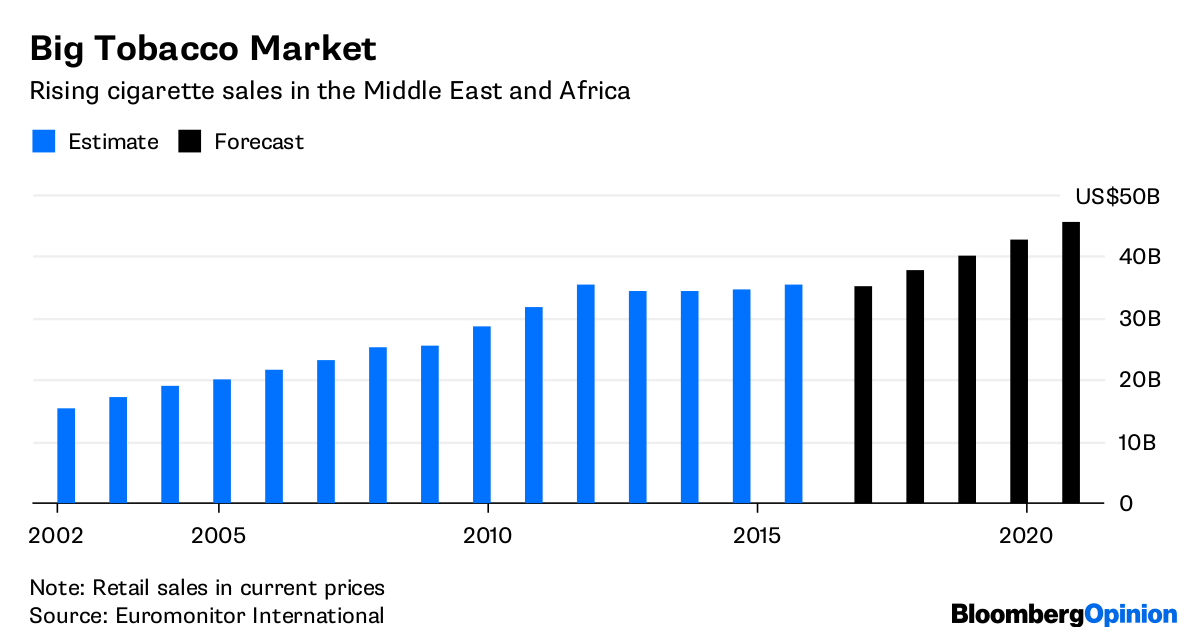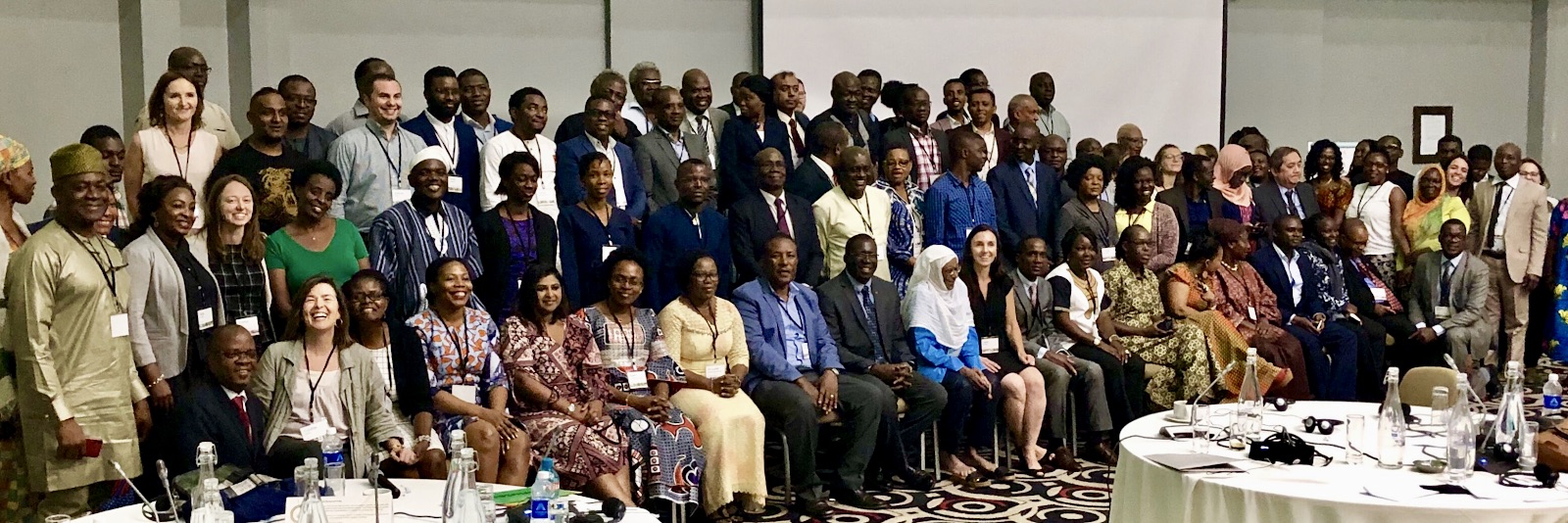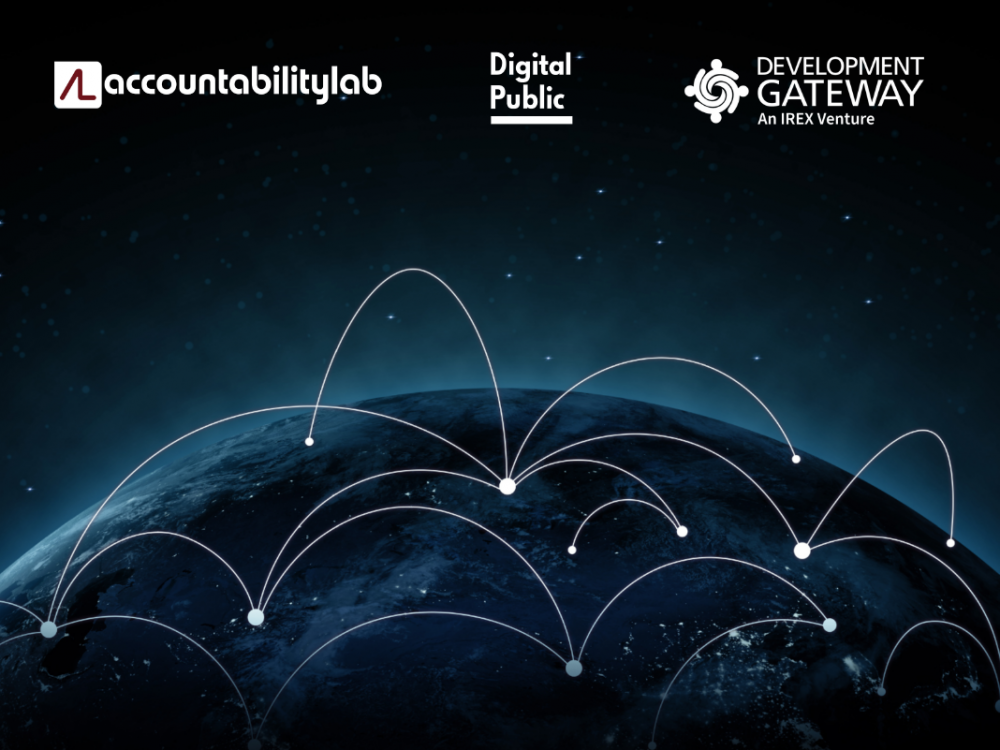The Tobacco Control Data Initiative (TCDI): A New Partnership with African Policymakers to Utilize Data for Effective Tobacco Control
Development Gateway (DG) is pleased to announce a new program supported by the Bill & Melinda Gates Foundation (BMGF) to work with African policymakers, governments, and civil society organizations to use data to promote tobacco control across the continent.
Tobacco products are widely considered the most deadly consumer product available. When used as directed, they kill half of their users. Over 8 million deaths are caused annually by tobacco use, including 1.2 million non-smokers who die from second-hand smoke.
While historically lower than in upper-income countries, tobacco usage rates are on the rise in low- and middle-income countries, including within Sub-Saharan Africa (SSA). Unless serious tobacco control initiatives are passed and successfully implemented, tobacco use could double in the African continent within a decade.
That outcome is preventable. Certain legislative policies are proven to reduce exposure to and use of tobacco products. These policies are recommended in the World Health Organization’s Framework Convention on Tobacco Control and include provisions on smoke-free indoor areas, limits on advertising, and health warnings on tobacco packaging.
However, lawmakers in SSA who are considering passing these policies do not have easy access to trusted data on tobacco control. Although good quality data often exists, it often remains siloed within individual agencies, research institutions, private sector companies, and civil society organizations (CSOs). Furthermore, some information that policymakers do have on-hand cannot be trusted, as tobacco industry representatives frequently provide them with misleading economic data designed to turn policymakers away from tobacco regulation.

Figure 1: Cigarette sales are rising in the Middle East and Africa. Euromonitor International, Bloomberg Opinion
In partnership with the University of Cape Town (UCT), DG has been awarded a 3.5-year grant from BMGF to address this problem – to consolidate available and trusted tobacco control data, identify and fill gaps in that information, and create a one-stop-shop for policymakers to access the relevant data they need to pass and monitor tobacco control legislation.
DG is uniquely positioned to carry out this work, with nearly 20 years of experience supporting data-for-decision-making. The TCDI program incorporates methodologies developed and refined in recent years through our aid management, open contracting, agriculture, and health portfolios to identify key data needs and ensure that key government stakeholders have access to the right data at the right time in the right format.
DG is engaging with 4 countries to participate in TDCI in 2019-2020, and will add 3-4 additional countries in 2020-2021. Each country program will be guided by in-depth needs assessments and stakeholder workshops to identify policy priorities, data gaps, and decision-maker needs. Utilizing these inputs, TCDI will build tools that support data for more effective tobacco control policy design and implementation.
We look forward to building on the progress being made across SSA by Ministers of Health, Ministers of Finance, Ministers of Trade, government, and CSOs, which have been fighting valiantly to pass legislation aimed to prevent and limit tobacco usage.
We are eager to stand arm-in-arm with these allies and offer our expertise in data-for-decision-making to join the fight for tobacco control – and ultimately, help save lives.

Figure 2: The full participant group at the Africa Tobacco Control Meeting, which DG attended in October 2019
Do you have experience working in data use for decision making or implementing tobacco control policy? Please share your thoughts and suggestions with us, by following along on Twitter @DGateway or by emailing aulrich@developmentgateway.org.
Share This Post
Related from our library

Economic Toll of Tobacco-Related Diseases in Kenya: New Research Findings
Development Gateway: An IREX Venture (DG) is pleased to announce the publication of a research manuscript on the Economic Costs of Tobacco-Related Illnesses in Kenya. This research was carried out as part of the Tobacco Control Data Initiative (TCDI) activities in Kenya and is part of a broader report on Morbidity and Mortality from Tobacco Use in Kenya.

Launching a Partnership Matching Service for Nonprofits
While a lot of us have talked about the potential, value, and – in some cases – need for more mergers and acquisitions in the non-profit space, recent events have made it clear: now is the time. That’s why the teams at Accountability Lab, Development Gateway: An IREX Venture and Digital Public, partnered up to develop both a new toolkit, a partnership matching service, and professional support infrastructure aimed at assisting the organizations facing this challenge.

Unlocking Africa’s Agricultural Potential: Introducing the Soil Nutrient Roadmap
For over a decade, Development Gateway: An IREX Venture (DG) has been at the forefront of digital agriculture, leveraging agricultural data to support input monitoring, value chain analysis, and farmer-centric governance models. With funding from the Gates Foundation, DG is launching the Soil Nutrient Roadmap (SNR), a cutting-edge initiative using geospatial data to estimate current and future soil and crop nutrient requirements.